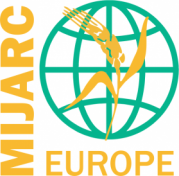The recent terrorist attacks in Belgium, France, Germany, Spain and UK, to mention just those happening in Europe, together with the rise in incidents of hate-speech, propaganda and violent xenophobia in Europe show an urgent need for contributions from all sectors in society, including the youth sector, to fight violent radicalisation. While violent radicalisation needs to be confronted and taught on a number of fronts, it is important, that the threats and dangers that it poses for young people are recognised, prevented and acted upon by early and effective intervention measures, respecting young people´s cultural diversity.
The process of identity development can be influenced by many factors, such as family background, peers, internet and social media, political environment and the position of groups of young family in society often confronted with discrimination, humiliation, exclusion, injustice, a lack of prospects, feelings of frustration, which could lead to violent radicalisation.
Parents, siblings, peers and other relevant actors are crucial in supporting a positive development of identity. This can include intercultural awareness and respects for others, active participation in society, but also aspects of spirituality, religion or belief, and involves strengthening the sense of belonging necessary to counterbalance the information and extremist ideas young people may exposed to. Young people should be encouraged to engage in self-reflection, develop empathy, learn critical thinking, how to live with challenges and uncertainties and how to deal with situations and emotions that cause them discomfort, thus becoming more resilient and maintain constructive relations across social groups.
Young people must have awareness and understanding of democracy, equality, respect for human dignity, human rights, pluralism and diversity, and be skilled in media and information literacy. This contributes to critical thinking, an awareness of and knowledge about how information can be based and exploited by violent extremist groups in order to spread propaganda.
Youth work is an accessible and outreaching service, method and tool aiming for the positive identity development of all young people, providing a non-formal and informal environment for the development of values, skills, competences, talents and open attitudes, which also enables them to recognise and manage the risks they are likely to encounter, including violent radicalisation. Youth work uses a broad and holistic approach, involves young people actively and works together with individuals and groups of young people to find solutions to their questions and problems. In this way youth work offers a save environment to grow, build an identity, feel a sense of belonging and be explored to positive peer influences and could prevent negative peer pressure leading to violent radicalization.
Article by Johanna Grießer
